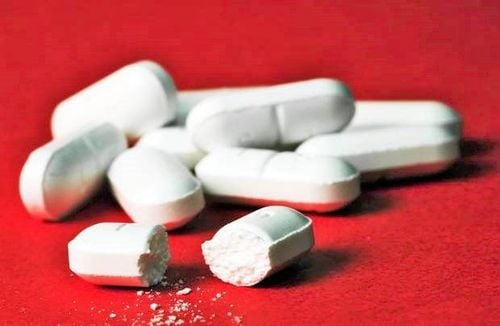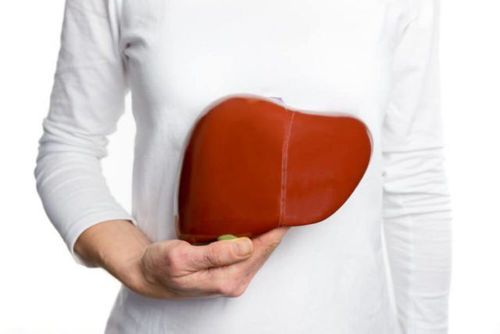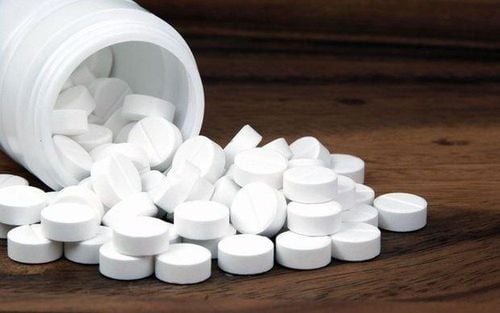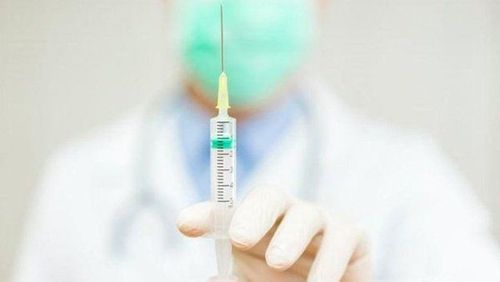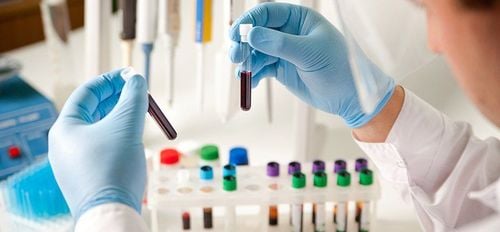This is an automatically translated article.
The article was professionally consulted with Specialist Doctor I Vo Thi Thuy Trang - Gastrointestinal Endoscopy - Department of Medical Examination & Internal Medicine - Vinmec Danang International General Hospital.Fulminant hepatitis is a dangerous inflammation of the liver that can quickly become life-threatening. You may also hear this condition called “fulminant liver failure” or “acute liver failure.” Seek immediate medical attention if you or someone close to you has any signs of fulminant hepatitis.
1. What is fulminant hepatitis?
Fulminant hepatitis is when your liver begins to damage very quickly within days or weeks, depending on the cause. This acute hepatitis can occur in people who have previously had stable liver disease or have never had liver problems.Your liver can be severely damaged if its cells are damaged and stop working. Fulminant hepatitis is usually caused by the following:
Acetaminophen overdose: This pain reliever is found in many over-the-counter and prescription drugs. Taking a very large dose can quickly damage your liver. The same thing can happen if you take more than the recommended amount for several days in a row. If you or someone else has taken too much acetaminophen, call 911 right away. Viral hepatitis: Infection with certain viruses, including hepatitis A, B, C, D, or E, can lead to sudden liver failure. Some of the less common causes of fulminant hepatitis include:
Prescription drugs: Certain antibiotics, cancer drugs, and other drugs can cause liver damage leading to liver failure. . Certain viruses: For example, Epstein-Barr virus or herpes simplex virus can cause fulminant hepatitis. Autoimmune hepatitis: This occurs when your immune system attacks and damages liver cells. Cancer: Tumors that start or spread to the liver can cause serious liver damage. Vein problems: A disease of the veins in the liver, called Budd-Chiari syndrome, causes blockages that can lead to liver failure. Mushroom poisoning: The wild mushroom Amanita phalloides seems safe to eat, but it has a very strong toxin that damages the liver. Wilson's disease: This disorder allows copper to build up in your liver and other organs. Too much copper can be dangerous. Certain herbal products such as kava, ephedra, and fenugreek can lead to liver failure. In many cases, doctors cannot find the cause of fulminant hepatitis.
2. Symptoms of fulminant hepatitis
Early symptoms of acute hepatitis include:Feeling unwell Tiredness Nausea Discomfort or stomach pain When acute hepatitis gets worse, symptoms include:
Yellowing of the skin or eyes Feeling very confused Sleepiness Changes in your personality or behavior, such as being more irritable or disoriented. Bleeding or bruising more easily. Stomach distended

3. Diagnosis of fulminant hepatitis
Your doctor will ask about your medical history, any past drug use, and if you've been exposed to toxins that can affect your liver. Your doctor will also check for symptoms of hepatitis and check your level of alertness.To help diagnose and find the cause of fulminant hepatitis, your doctor may order:
Blood and urine tests: The results can show how your liver is working. Your doctor will also do a test to see how long it takes for your blood to clot. When you have fulminant hepatitis, your blood doesn't clot as quickly as it should. Liver imaging: Imaging tests allow your doctor to examine your liver for damage, vein problems, tumors, or other problems. You may have an ultrasound, an MRI, or a CT scan. Liver biopsy: Your doctor will take a small portion of your liver tissue for examination.
4. Treatment of fulminant hepatitis
Treatment for fulminant hepatitis depends on your symptoms and the underlying cause. You will likely be admitted to the hospital's intensive care unit. Treatment may include any of the following.Antidote: This is a medicine used to counteract the effects of poison. If your liver suddenly begins to fail from an acetaminophen overdose, your doctor may give you an antidote called N-acetylcysteine to block the effects of acetaminophen. This medicine may also help treat other causes of acute liver failure. Other antidotes can help reverse the effects of mushroom poisoning and help reduce liver damage. Medicines for hepatitis: Doctors use antiviral drugs to treat some forms of viral hepatitis. For example, if hepatitis B is the reason for your liver failure, an antiviral medication can fight the virus. Other antiviral medications may be helpful if the herpes simplex virus is causing fulminant hepatitis. You may receive steroids if autoimmune hepatitis is the cause of your fulminant hepatitis. Liver transplant: If other treatments can't get your liver working again, you may need a new liver. If you are approved for a liver transplant, your name will be placed on a waiting list for an organ donation. Those with the most urgent needs top this list. During a liver transplant, the surgeon removes your damaged liver and replaces it with a healthy liver from a donor. Scientists are working on new treatments that could reduce or delay the need for a liver transplant.
Your doctor will also treat your symptoms and side effects. That care may include:
Medicines to reduce pressure on your brain: One of the most serious side effects of acute liver failure is cerebral edema. Excess fluid builds up causing pressure, which can lead to brain damage. Certain medications can help reduce brain swelling. Tests to check for infections: For example, end-stage hepatitis makes you more likely to get an infection in your blood or urinary tract. Blood or urine tests can find an infection so your doctor can treat it. Medications to prevent bleeding: Your liver makes chemicals that help blood clot. When your liver isn't working, it can't make enough blood clots. As a result, your body's risk of heavy bleeding is higher. Medicines can help prevent bleeding. If you lose a lot of blood, you may need a blood transfusion.

5. Can fulminant hepatitis be prevented?
In some cases, you can prevent acute hepatitis. The two most common causes of fulminant hepatitis are acetaminophen overdose and viral hepatitis. To help reduce your risk of fulminant hepatitis, you can:Take acetaminophen as directed. Check the label for the recommended dosage and do not take more than that. Avoid contact with other people's blood and body fluids. This can reduce your risk of getting the hepatitis virus. If you are visiting developing countries, you should avoid using local tap water. And vaccines are now available to prevent hepatitis A and hepatitis B, which are more common in some parts of the world. Fulminant hepatitis is a condition of liver damage that can be life-threatening if not treated promptly. However, we can prevent this by avoiding some of the causes of acute hepatitis.
Please dial HOTLINE for more information or register for an appointment HERE. Download MyVinmec app to make appointments faster and to manage your bookings easily.
Reference source: webmd.com





